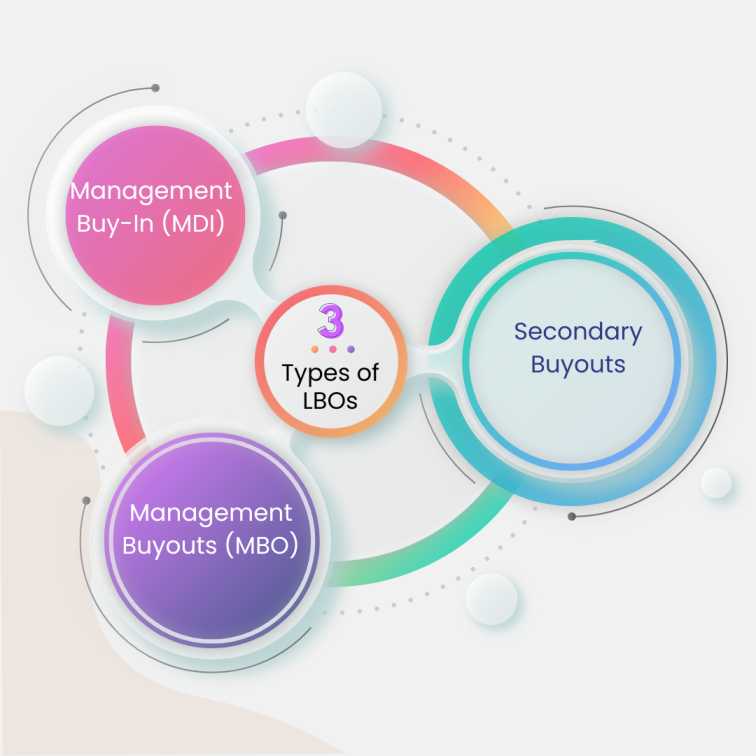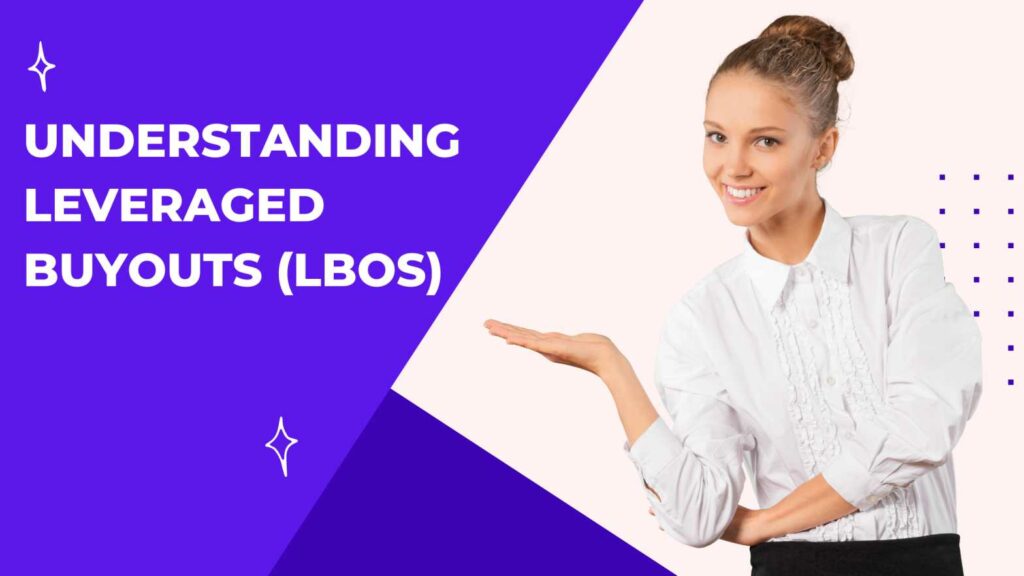Last updated on July 1st, 2024 at 12:56 pm
In both global and domestic business environments, the usage of Leveraged Buyouts (LBOs) is quite common and is used both by large as well as small companies. When a company does not possess the required amount to buy the shares of any small or private business then it can borrow the buying price to acquire the desired deal. This borrowing of money against the assets or cash flow of a company is known as a Leverage Buyout (LBO).
If an individual is willing to commence a career in investment banking then they must have enough knowledge about Leverage Buyout (LBO). An investment banking course will help these individuals to learn more about LBO. In this article, we will vividly discuss and cover this topic.
So let’s dive in to learn more about the Leveraged Buyouts (LBOs)!
What are Leveraged Buyouts?
In simple terms, Leveraged Buyouts can be described as a financial transaction in which one company buys or acquires another company with the assistance of equity as well as debt money. This debt amount will later be repaid by the company with the help of its and the targeted company’s future cash flow. A targeted company which is also known as the seller is a company that has been acquired or bought by some other private company.
Hence, LBOs allow a company to make big acquisition deals with a nominal amount of capital. A company can invest only 10% of its capital and the rest 90% of the amount can be taken as a debt. This form of financial transaction is profitable for both the buyer and the targeted company if the transaction is completed.
Why is LBO Used by Companies and Businesses?
There are various reasons why companies prefer to use Leveraged Buyouts (LBOs) while acquiring a company. Here are a few of those reasons:
- When a public company is converted into a private company the Leveraged Buyout (LBO) is used.
- Many companies also use the Leveraged Buyout (LBO) method to acquire a large selling company without even investing a huge amount of capital.
- When a company wants to create a new company by selling the existing part of that company then this method is used.
- It eases the transfer of ownership of a small private company to any big company.
What are the Various Types of LBOs?

There are various methods through which Leverage Buyouts (LBOs) can be carried out. These methods have been elucidated below:
1. Management Buy-In (MDI)
In this method of Leveraged Buyout (LBO), the company is acquired by external investors who will create the company from scratch. This means that they will change the existing employees, board of directors, management teams, etc. This is the main reason why the management buy-in (MDI) method creates chaos initially.
However, the management buy-in (MDI) method can create excellent investment returns for the buyers if they properly carry on the changes. This method is usually applied to companies that are performing poorly or are undervalued.
2. Secondary Buyouts
A secondary buyout takes place when there is a buyout of an existing buyout. When a buyout that has been acquired with the LBO method is sold to another private company then a secondary buyout takes place. The seller after selling the buyout can instantly get a complete separation from it.
Secondary buyouts are ideal for those private companies that work under a specific category and have slow growth with high cash flow.
3. Management Buyouts (MBO)
Unlike the management buy-in (MDI) method, here the company is acquired by the management team of the targeted company. The management buyout (MDO) method is often chosen by those owners who are willing to retire. In this method, the management team does not change therefore there is no chaotic transaction of business.
Management buyout (MDO) is generally used by large companies whose one of the divisions is working poorly and is undervalued. If this method is implemented successfully then the buyers will receive high investment returns.
Advantages of Leveraged Buyouts
There are plenty of advantages that a buyer and seller will receive if their Leveraged Buyout (LBO) transaction is executed properly. These advantages have been discussed in detail here:
- One of the greatest advantages that buyers get is that they can acquire an entire company without even spending much of its assets and capital.
- By using the LBO method the buyers can easily receive high investment returns and they need to pay low income taxes.
- Even the sellers or the targeted companies receive many advantages by simply using the LBO method. They can save a company that has high cash flow but is performing poorly. By selling such a company the seller saves it from massive failure.
- LBO also allows private groups like employees and families to acquire the selling company.
To grab these advantages a company must update their employees’ skills with the assistance of an investment banker course or an investment banking certification. There are plenty of investment banking courses online that will not only help an employee grow but also assist the company in executing more Leveraged Buyout (LBO) transactions.
Real-life Example of Leveraged Buyouts (LBOs)
Leveraged buyouts were extremely popular before the financial crisis that took place in 2008. Many large-scale LBOs had taken place before this crisis. However, the popularity of Leveraged buyouts (LBOs) has again gained popularity since the Covid-19 pandemic.
In 2006, the biggest LBO took place in history when three companies including Merrill Lynch, Bain & Co., and Kohlberg Kravis Robert & Co. acquired an American company that was valued at around 33 billion USD. The name of the American company is Hospital Crop. Of America (HCA).
Following this huge-scale LBO there was a halt until the Covid-29 pandemic. In 2021, the Blackstone Group bought Medline using the Leveraged Buyout (LBO). The entire transaction was valued at around 34 billion USD.
Conclusion
Imarticus Learning offers a Certified Investment Banking Operations Professional course where you will learn all the necessary skills and knowledge you will need as an investment banker, financial analyst, risk management consultant and other key financial roles. If you are invested in creating a career in the banking and finance sector, you can enrol in this banking and financing course to increase your prospects and opportunities.

